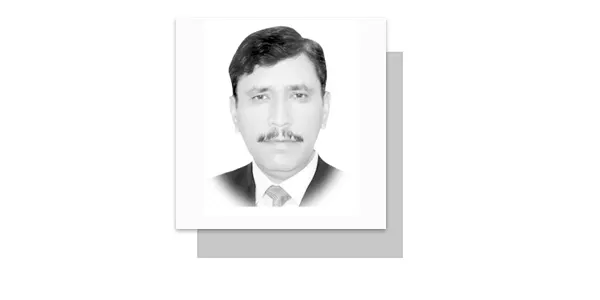SENATOR Raza Rabbani, the central leader of the People’s Party and the staunch supporter of the 18th Constitutional Amendment, once felt depressed when he voted in favor of the military courts established for a limited period in the context increasing incidents of terrorism. Now he is perturbed over the IMF delegation meeting with the leadership of political parties, also the opposition for securing support to its standby loan. In the first case, it was the judiciary that had to cease its space to an otherwise a defence institution. In the second case, it is the political sovereignty of the state that is encroached up on. The problems appear to belong to different categories but their root cause is the same: the dismally low performance of organizations and groups associated with democracy.
Democratic deficit, which the political scientist identify with curtailment of civil liberties and the tendency towards authoritarianism, has turned our world upside down. There is democracy, but neither is it protecting the basic rights of the people (food, health, clean water, education) nor is it a bond to keep their purchasing power stable. Human indices being low do not augur well with the stature of the country in the international community. While a small class controls both the economy and politics, people become stuck in the vicious cycle of hunger and disease.
Political scientists insist that the democratic deficit, if not controlled, will push the country into the lap of authoritarianism, something the democrats of ours loath the most. They have identified its symptoms and determined how to measure and, consequently, lessen its severity. The situation in Pakistan is very much alarming. Democracy is in name only. While the champions of democracy are in power, accountability is missing and basic rights largely suspended. Civil liberties, including the right of expression and the right of assembly, are both in jeopardy. Parliament is incomplete as the largest party of the country is absent from here. Non- representative government is firmly established in two provinces of the country because the Election Commission was not able to conduct the elections on time. Colonial-era laws were applied to the opposition for demanding these elections which had become due. Thousands of its workers are in jail, while its central level leaders are being forced to ditch their party. Islamabad, the capital of Pakistan and the largest province, lack representative governments at the local level, and if they exist in other provinces, they are weak and feeble.
The recent wave of democracy in Pakistan owes to the US-mediated Charter of Democracy in 2006 between the Pakistan People’s Party and the Muslim League (N) whereby they got away with their decade-long enmity and resolved to run the political system with consensus. Parliamentary supremacy, provincial autonomy and the independence of judiciary was the outcome of the newly-found political brotherhood. While the two parties strived for establishing two party system wherein they could alternate each other in the corridors of power, they grossly ignored the condition attached with the 18th Constitutional Amendment: the establishment of politically, financially and administratively independent elected local governments. When a vacuum was created and persisted almost for a decade, a third party appeared on the political horizon, which overthrew both the old parties in 2018 elections. Instead of exploring a middle ground, the country was engulfed in five years of political animosity. What was the result other than inflation, trade deficit and lawlessness?
The democratic deficit is duly rooted in the colonial-era socio-economic structure marked with feudalism and the black laws devised to to deprive people of their natural liberties. The tax system disenfranchises the poor and privileges the rich. No civilian government ever thought of changing the rules of the game to restore human dignity after the country got independence. Never a serious attempt has been made by the civilian governments to amend laws confirming to our independent existence.
Strangely enough, the political dispensation only serves the colonial-era socio-economic structure. Neither the taxation system has been changed nor the anti-people laws or the rules of representation. To be honest, political parties have become hostages of authoritarian groups — no devolution of power to the grassroots and no respect for fundamental rights.
Ensuring the supremacy of the constitution and law with a focus on the preservation of fundamental rights will restore the natural freedom of the people, promote patriotism and lay the foundation of a sustainable growth. Once the democratic credentials of the country improve, investment inflows will increase to improve the economic fundamentals.
So, politics is the way out of the situation the country finds itself right now. Only politics can fulfil the requirements of national security and keep the economy on the right track. In the democratic context, the focus of politics is human dignity and the rights associated with it. If politics is subjected to the wishes and whims of elite, neither the economy nor the country’s autonomy will remain intact. However, if the politics is fixed, the economy will rise and so will the society.
—The writer is politico-strategic analyst based in Islamabad.
Email: [email protected]










